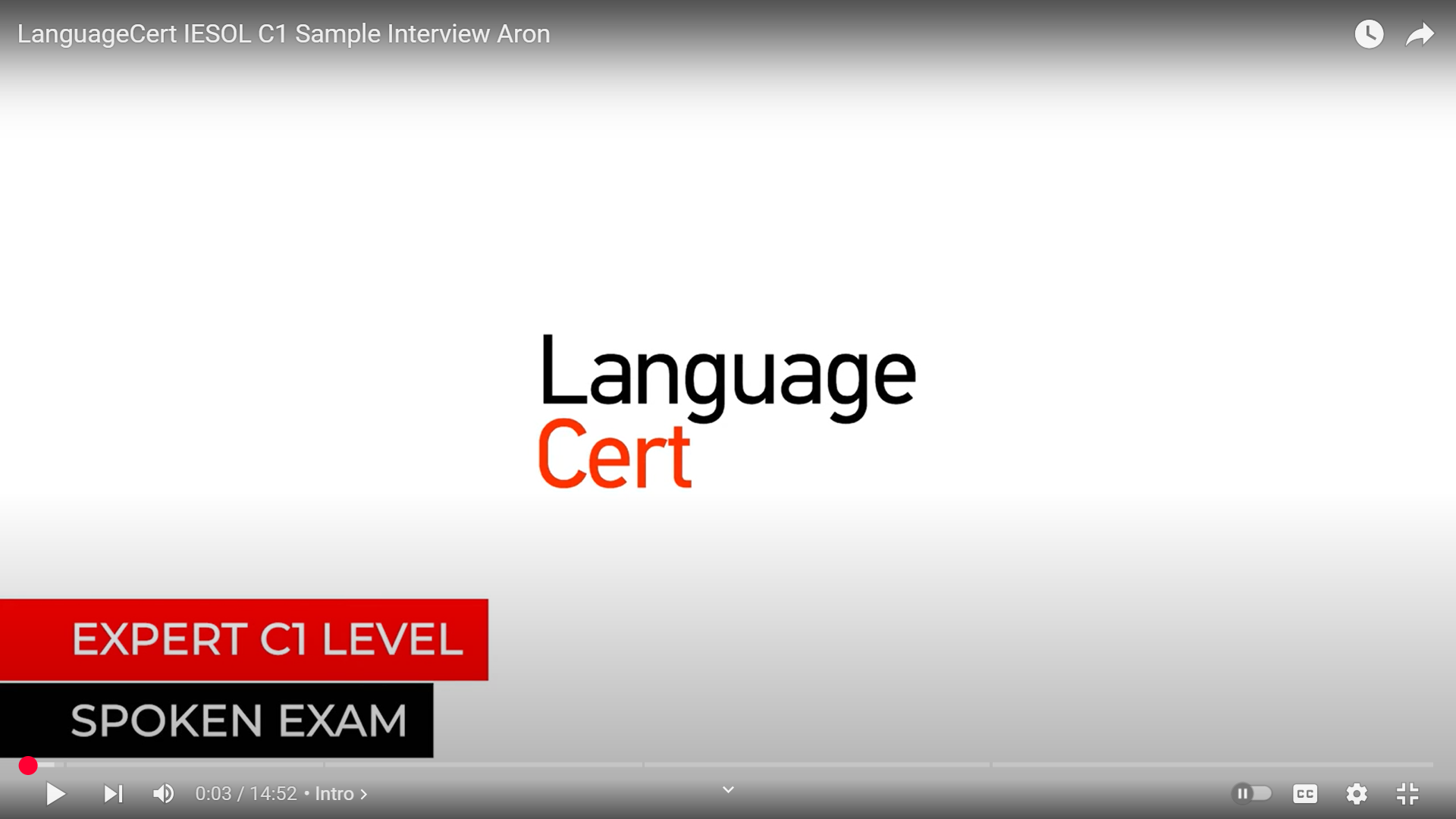If you're considering taking a LanguageCert C1 exam in Madrid, you've probably heard of Cambridge, but there's a new contender on the rise—LanguageCert C1. In the Community of Madrid, this exam is rapidly gaining popularity, especially among educators who need an official C1 certification for teachers to secure a job.

Why is LanguageCert C1 Exam in Madrid Becoming So Popular?
- It's Shorter and More Manageable Unlike Cambridge, LanguageCert C1 exam has a more streamlined format. The exam is shorter, making it feel less overwhelming for candidates.
- It's More Accessible Many students find LanguageCert C1 certification to be a more practical and achievable option. The structure of the test makes it easier to complete successfully compared to Cambridge.
- Fast C1 Exam Results One of the biggest advantages of LanguageCert C1 exam Madrid is the quick turnaround time for results. Candidates don’t have to wait as long as they would with Cambridge, which is a crucial factor for those who need their certificate quickly for job applications.
- Easiest C1 English Test? While Cambridge has long been the standard name in English certification, LanguageCert C1 exam is quickly becoming the preferred choice for many professionals. As more institutions and employers recognize it, its status continues to rise.
The Best C1 Certification for Teachers and Professionals in Madrid
For teachers and other professionals in Madrid who require a C1 certification, LanguageCert C1 exam is proving to be the most efficient and practical option. Its growing reputation, ease of access, and quicker results make it the ideal choice for those looking to meet job requirements without unnecessary delays or stress.
However, C1 certification is not only essential for teachers—it is also valuable for professionals in law, healthcare, engineering, and business, as it demonstrates a high level of English proficiency. Additionally, many universities and master’s programs require a C1 level for admission. Institutions such as Universidad Complutense de Madrid, Universidad Autónoma de Madrid, and IE Business School consider C1 certification a key requirement for students entering postgraduate programs.
How We Add Value to Your Learning Experience
We are more than just an exam provider—we offer a complete language learning experience tailored to your needs. Whether you're preparing for LanguageCert C1 or looking to improve your overall English proficiency, we provide a diverse selection of courses designed for learners of all levels.
Each of our courses includes:
- Dynamic lessons that explain key concepts clearly.
- Engaging materials to enhance comprehension skills.
- Thought-provoking ways of learning to reinforce learning.
- Real exams to test your progress.
- Strategies and insights from real exams to help you succeed.
We focus on all four key language skills: Reading, Listening, Speaking, and Writing. Our methodology ensures that students gain a balanced proficiency, making them well-prepared for any real-world or academic challenge.
We recognize the importance of in-person learning in Spain, which is why we also offer tailor-made classes. We send the right teacher to you, ensuring that you receive the best possible instruction based on your individual learning goals.
Additionally, we provide a weekly in-person class, allowing direct interaction with experienced instructors and fellow students. This real-time engagement ensures you get personalized feedback and practical language application, making your learning more effective.
Contact Us
If you have any questions, suggestions, or feedback, please don’t hesitate to reach out to us. We are always here to assist you on your language learning journey. Contact us
In this video, you'll see a whole exam, which is divided into four parts. The first part, which is 3 minutes long, is a series of short questions. The second part, which also lasts three minutes, is a role-play task. In part 3, the student and the examiner discuss different aspects of a diagram. Finally, the candidate has to speak about a topic for 2 minutes. Follow-up questions related to the two-minute-talk are then asked. And that's it.


